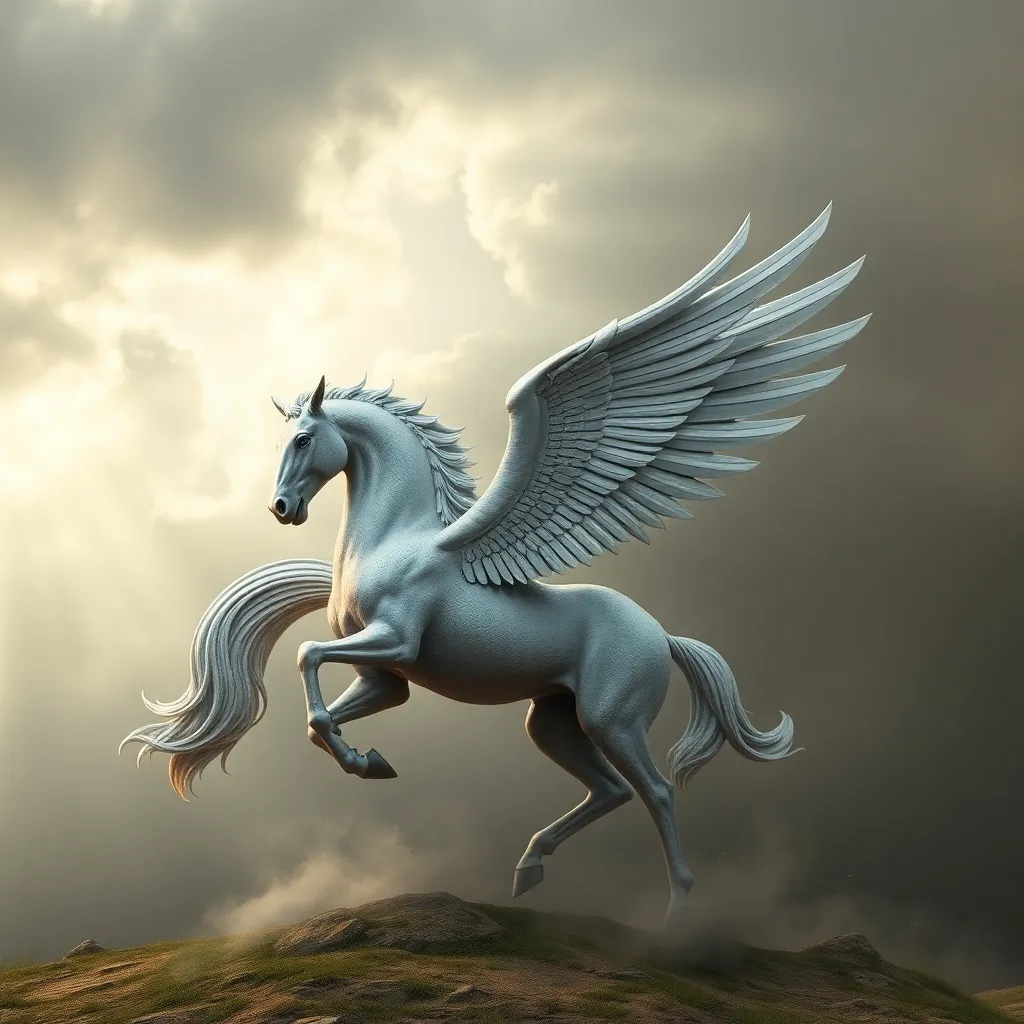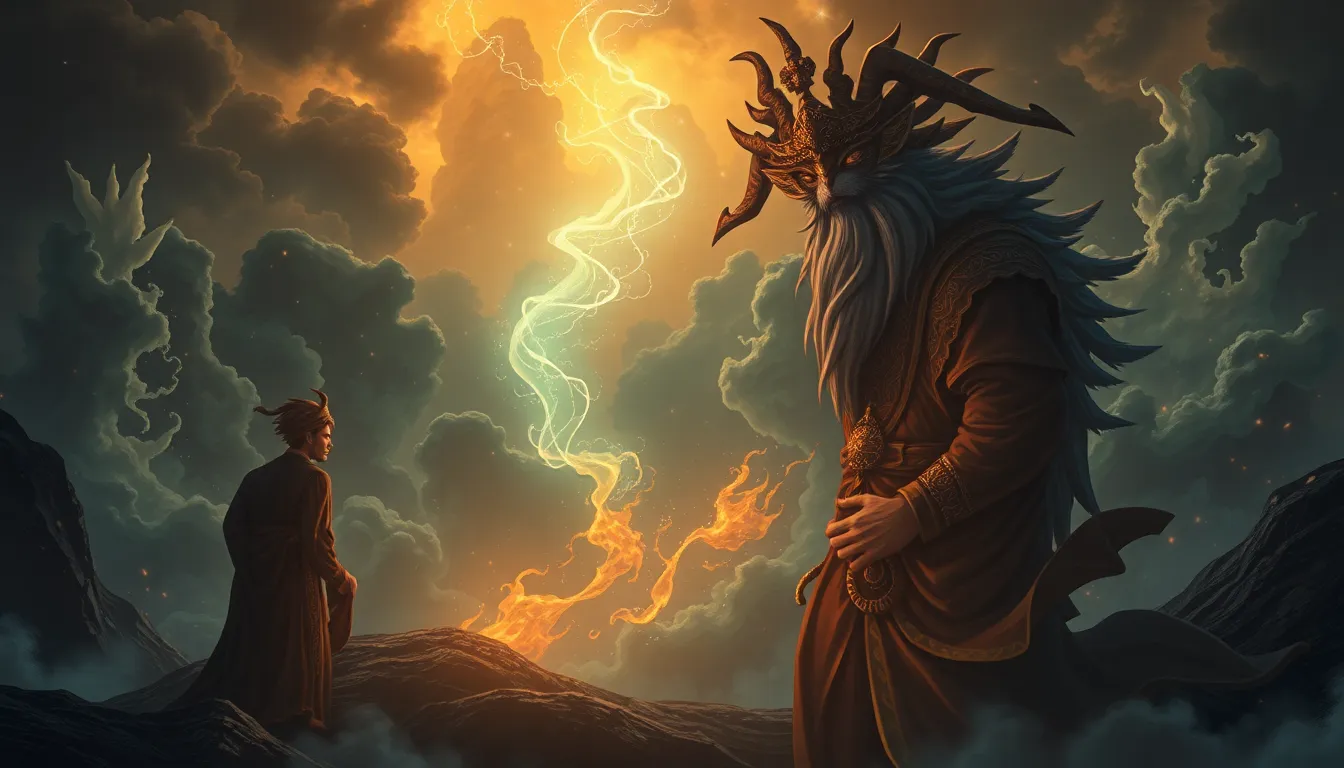The Divine Horse of Warfare: Investigating the Use of Pegasus as a Symbol of Military Strength
I. Introduction
Throughout history, symbols have played a crucial role in shaping cultural narratives and collective identities. One of the most enduring symbols from mythology is Pegasus, the winged horse of Greek mythology. Associated with both divine inspiration and military prowess, Pegasus has transcended its mythological origins to become a powerful emblem of warfare.
This article explores the significance of Pegasus as a military symbol, tracing its mythological roots, historical applications in warfare, and contemporary relevance in military contexts. Through this exploration, we aim to understand how Pegasus embodies the ideals of strength, valor, and divine intervention in the face of conflict.
II. The Mythological Origins of Pegasus
A. Birth and lineage of Pegasus
In Greek mythology, Pegasus is born from the blood of Medusa, a Gorgon slain by the hero Perseus. As Medusa’s head was severed, Pegasus sprang forth, symbolizing the emergence of beauty and chaos from destruction. This unique lineage sets the stage for Pegasus’s duality as both a creature of war and a symbol of inspiration.
B. Role in Greek mythology and connection to war
Pegasus is not merely a creature of flight; it is deeply intertwined with themes of warfare. The winged horse is often depicted as a companion to great heroes, such as Bellerophon, who rides Pegasus to defeat the monstrous Chimera. This connection to heroic deeds and battles cements Pegasus’s role as a symbol of triumph over adversity.
C. Symbolism of flight and divine intervention
The ability to soar through the skies gives Pegasus a unique position in mythology. Flight symbolizes freedom, divine favor, and the transcendence of earthly limitations. In a military context, it represents the aspiration for victory against overwhelming odds, as well as the intervention of the gods in human affairs.
III. Pegasus in Ancient Warfare
A. Depictions of Pegasus in ancient art and literature
Pegasus appears frequently in ancient Greek art, from pottery to sculptures, often depicted alongside heroes or in battle scenes. These artworks serve as visual narratives that highlight the importance of Pegasus in the mythology of war.
B. Use of Pegasus in military insignia and emblems
Throughout history, various military units have adopted Pegasus as their emblem. The symbol is used to convey strength, speed, and the divine protection of warriors. For example, the emblem of the British Army’s 22nd Special Air Service (SAS) incorporates Pegasus, reflecting the unit’s elite status and operational excellence.
C. Historical accounts of Pegasus in battles or as a source of inspiration
While Pegasus may not have participated in actual battles, its image has inspired countless warriors. Historical accounts suggest that soldiers invoked the spirit of Pegasus for courage and strength before engaging in conflict, highlighting the psychological impact of this mythical creature.
IV. The Psychological Impact of the Pegasus Symbol
A. The power of symbols in military culture
Symbols like Pegasus can have profound psychological effects on military personnel. They serve to unify troops under a common banner, fostering a sense of identity and purpose. The image of Pegasus evokes ideals of bravery, making it a powerful motivator in the heat of battle.
B. How Pegasus embodies aspirations of valor and strength
Pegasus represents not only physical strength but also the courage to rise above challenges. This duality resonates deeply with military ethos, encouraging soldiers to embody the traits associated with the winged horse—valor, resilience, and the pursuit of excellence.
C. Case studies of military units adopting the Pegasus symbol
- The United States Air Force’s 67th Special Operations Squadron features Pegasus in its insignia, symbolizing the unit’s agility and capability.
- The Royal Air Force has also employed Pegasus in various capacities, signifying air superiority and swift response in military operations.
V. Pegasus in Modern Military Contexts
A. Contemporary uses of Pegasus in military branding
In the modern era, Pegasus continues to serve as a potent symbol in military branding. It is featured in logos, patches, and promotional material, reinforcing the connection between the ideals of flight and military prowess.
B. Examples from various nations and their armed forces
Numerous nations have adopted Pegasus in their military insignia:
- The Hellenic Air Force of Greece incorporates Pegasus into its emblem, celebrating its mythological heritage.
- In the United States, various air and special operations units utilize Pegasus as a symbol of speed and airborne capabilities.
C. The evolution of Pegasus in modern warfare symbolism
As warfare has evolved, so too has the symbolism of Pegasus. It now represents not only strength in battle but also the innovative spirit of modern military technology, such as air and space capabilities. This evolution reflects the changing landscape of warfare and the enduring relevance of mythological symbols.
VI. Comparative Mythology: Pegasus vs. Other Military Symbols
A. Similarities and differences with other mythological creatures
While many mythological creatures serve as military symbols, Pegasus stands out for its unique combination of flight and divine lineage. Creatures such as unicorns and centaurs also symbolize strength and bravery, but none encapsulate the idea of divine intervention and the lofty aspirations associated with flight quite like Pegasus.
B. Analysis of other equine symbols in warfare (e.g., horses, unicorns)
Other equine symbols, such as the noble horse, have been traditional representations of military power. Unlike Pegasus, these symbols often emphasize ground strength and endurance. The unicorn, with its connotations of purity and magic, contrasts sharply with Pegasus’s embodiment of battle and aerial might.
C. The unique attributes of Pegasus that resonate with military ethos
Pegasus’s attributes—speed, flight, and divine lineage—resonate deeply with the military ethos of striving for excellence and overcoming challenges. This connection to both the skies and mythology gives Pegasus a distinct place among military symbols.
VII. Cultural Interpretations of Pegasus in Warfare
A. Pegasus in literature and film as a military icon
Pegasus has transcended mythology to become a cultural icon in literature and film, often portrayed as a symbol of heroism and triumph. From classical literature to modern fantasy films, Pegasus embodies the ideals of heroism and military valor.
B. Public perception and cultural significance of Pegasus today
Today, public perception of Pegasus continues to be shaped by its mythological roots and its associations with strength and bravery. As a cultural symbol, it remains relevant in discussions about military history and heroism.
C. The role of Pegasus in commemorating military history
Pegasus is often featured in memorials and commemorative events, serving as a reminder of the sacrifices made by soldiers and the ideals they embody. This role reinforces the connection between mythological symbols and the commemoration of military history.
VIII. Conclusion
The significance of Pegasus in military contexts cannot be overstated. From its mythological origins as a symbol of divine intervention to its contemporary uses in military branding, Pegasus embodies ideals of strength, valor, and the aspiration to rise above adversity. As we look to the future, the enduring legacy of Pegasus as a potent symbol of military strength will undoubtedly continue to inspire and motivate those who serve.
In a world where the nature of warfare is constantly evolving, the use of mythological symbols like Pegasus may remain a vital part of military narratives, connecting the past with the present and inspiring future generations of warriors.



